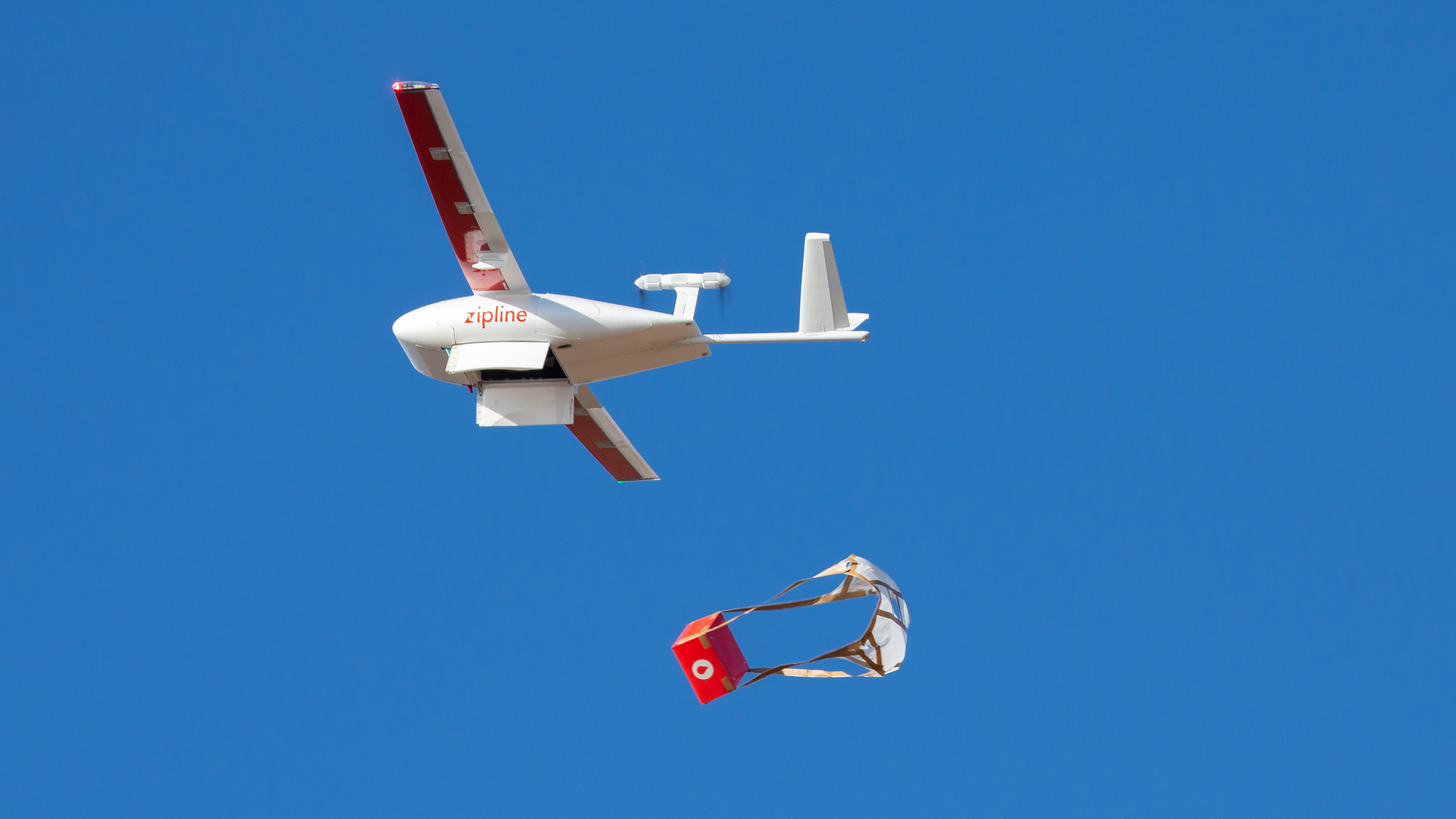Zipline, the San Francisco-based UAV manufacturer and logistics services provider, has launched a program in Ghana today for drone delivery of medical supplies.
Working with the Ghanaian government, Zipline will operate 30 drones out of four distribution centers to distribute vaccines, blood and life-saving medications to 2,000 health facilities across the West African nation daily.
“We’ll do 600 flights a day…and serve 12 million people. This is going to be the largest drone delivery network on the planet,” Zipline CEO Keller Rinaudo told TechCrunch on a call from Accra.
Zipline first launched in Rwanda with support from the Government of Rwanda and the UPS Foundation and Gavi. The Government of Ghana is building on that success with expanded Zipline services, supported again by Gavi and the UPS Foundation and joined this time by the Gates Foundation and Pfizer.
The Zipline drone network will be integrated into the national healthcare supply chain in Ghana and will help prevent vaccine stockouts in health facilities as well as during national immunization campaigns.
“The ability of the Government to supplement routine immunization on demand will allow us to make sure that there will always be enough life-saving vaccines for every child in Ghana,” said Dr Seth Berkley, CEO of Gavi, the Vaccine Alliance. “This is an exciting development for Gavi that is ultimately going to ensure we leave no one behind and help us protect more children living in remote areas against vaccine preventable diseases,” he added.
The UPS Foundation will provide $3 million, including $2.4 million in funding and UPS will provide $600,000 of in-kind shipping services. Separately, UPS has already begun an analysis of Ghana’s healthcare supply chain, providing expertise designed to complement the government’s vision to continually optimize the delivery of healthcare products.
Zipline which began in Rwanda in 2016 has made more than 13,000 deliveries to date. Zipline drones now deliver more than 65% of Rwanda’s blood supply outside of the capital, Kigali.




